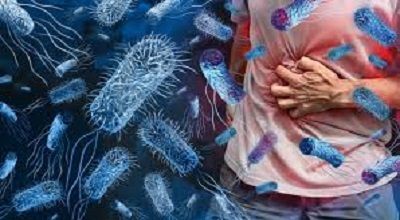Understanding Food Poisoning: Duration and Recovery
Food poisoning is a common illness caused by consuming contaminated food or water. It results from ingesting harmful bacteria, viruses, parasites, or toxins produced by microorganisms. The duration and severity of food poisoning can vary widely depending on several factors. This article explores the typical duration of food poisoning, factors influencing recovery, common symptoms, treatment options, and preventive measures.
What is Food Poisoning?
Food poisoning occurs when food or water contaminated with pathogens is consumed. Pathogens can include bacteria (e.g., Salmonella, E. coli), viruses (e.g., norovirus, hepatitis A), parasites (e.g., Giardia, Cryptosporidium), or toxins produced by bacteria (e.g., Staphylococcus aureus toxin).
Duration of Food Poisoning
The duration of food poisoning can range from a few hours to several days, depending on the specific pathogen involved, the amount ingested, and the individual’s health condition. In most cases:
- Bacterial: Symptoms typically appear within 2 to 6 hours after ingestion and can last 1 to 7 days.
- Viral: Symptoms usually appear within 1 to 3 days after exposure and can persist for 1 to 3 days.
- Parasitic: Symptoms may not appear for days to weeks after ingestion and can last for weeks to months if untreated.
Common Symptoms
Symptoms of food poisoning can vary widely but often include:
- Nausea and vomiting: These are common early symptoms and can be severe.
- Diarrhea: Often watery or bloody.
- Abdominal pain and cramps: These may be severe and persistent.
- Fever: Sometimes accompanies bacterial infections.
- Headache and body aches: Especially with certain bacterial and viral infections.
Factors Influencing Duration
Several factors influence how long food poison lasts:
- Pathogen type: Different pathogens have varying incubation periods and durations of illness.
- Health of the individual: Individuals with weakened immune systems may experience more severe symptoms and longer recovery times.
- Amount ingested: Larger quantities of contaminated food or water can lead to more severe symptoms and longer illness duration.
- Promptness of treatment: Early treatment can shorten the duration and severity of symptoms.
Treatment and Recovery
Treatment for food poisoning focuses on managing symptoms and preventing dehydration:
- Fluid replacement: Drinking plenty of fluids, especially water, to replace lost fluids and electrolytes.
- Medications: Anti-diarrheal medications may be prescribed in certain cases, but antibiotics are generally not recommended unless the cause is bacterial and severe.
- Rest: Adequate rest helps the body recover faster.
- Medical attention: Seek medical care if symptoms are severe, prolonged, or if there is blood in stools.
Prevention Strategies
Preventing food poisoning involves proper food handling and hygiene practices:
- Cooking: Cook foods to safe temperatures to kill pathogens.
- Cleanliness: Wash hands, utensils, and surfaces thoroughly.
- Separation: Keep raw meats separate from ready-to-eat foods.
- Chilling: Refrigerate perishable foods promptly.
- Awareness: Be cautious of food safety practices when eating out or traveling.
Conclusion
Food poisoning is a common and potentially serious illness caused by consuming contaminated food or water. The duration of food poison can vary depending on the pathogen involved, the amount ingested, and the individual’s health. Most cases resolve within a few days with supportive care, but severe cases may require medical attention. Preventive measures such as proper food handling and hygiene practices are crucial in reducing the risk of food poison. By understanding the duration, symptoms, treatment options, and prevention strategies, individuals can better protect themselves and others from this illness.
